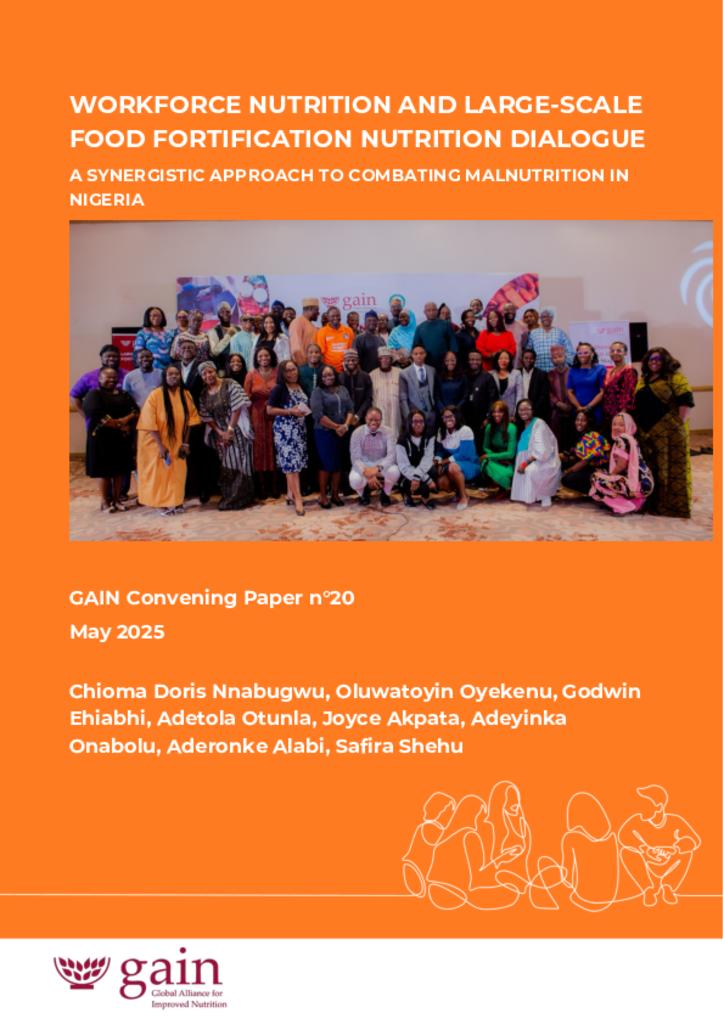Adequate nutrition is essential for physical and cognitive development, improved health outcomes, and enhanced overall individual productivity, all of which contribute to broader macroeconomic and societal growth. However, malnutrition remains a pressing challenge, particularly in low- and medium-income countries, including Nigeria. Recent findings from the National Food Consumption and Micronutrient Survey reveal multiple forms of malnutrition, including micronutrient deficiencies.
To address these gaps, Large-Scale Food Fortification (LSFF) initiatives, such as rice fortification, and Workforce Nutrition Programmes (WFN) have emerged as synergistic, transformative solutions. While LSFF aims to reach the whole population through fortified staple foods, WFN targets working populations who spend a significant portion of their lives at work with strategies to increase access to and demand for healthier diets by leveraging support and access through employers, cooperatives, and other labour platforms.
